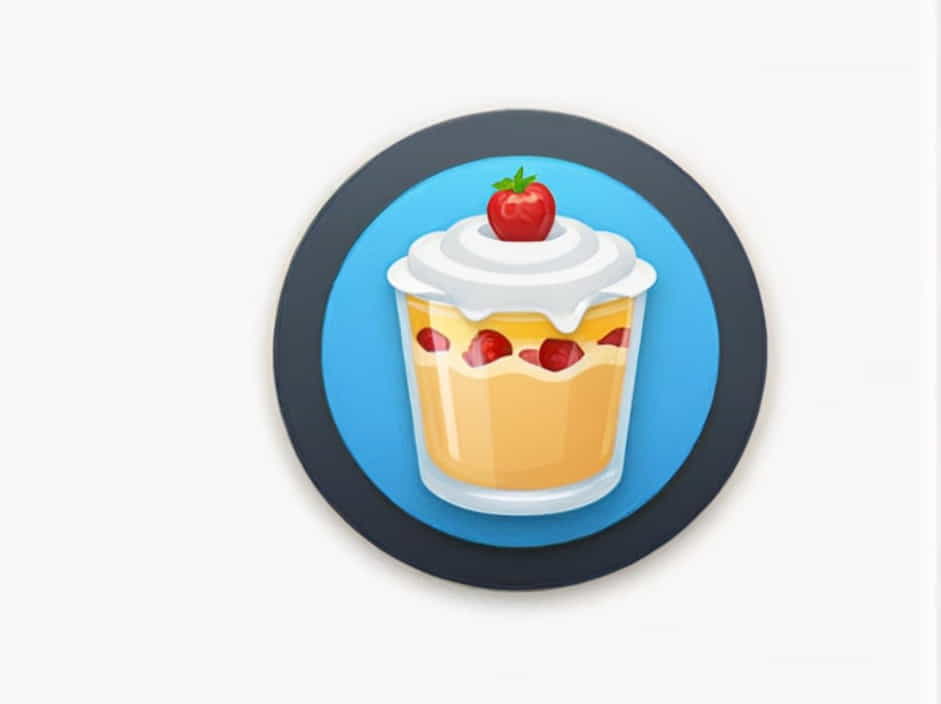The word “trifle” can have different meanings depending on the context. It can refer to something insignificant or unimportant, as well as a popular English dessert. This topic will explore the definition of trifle, its meanings, synonyms, examples, and how it is used in different situations.
1. Definition of Trifle
The term “trifle” has two primary meanings:
- A thing of little value or importance
- A layered dessert made with sponge cake, custard, fruit, and whipped cream
The word is often used to describe something insignificant, a small amount of something, or an action done without seriousness.
General Meanings of Trifle:
- Something trivial – an issue or object that is not important.
- A small quantity – a tiny or insignificant amount of something.
- To treat something lightly – to not take something seriously.
- A dessert – a traditional British layered dessert.
2. Synonyms of Trifle
Depending on how it is used, trifle can have different synonyms. Some include:
- For something unimportant:
- Insignificant
- Minor
- Trivial
- Inconsequential
- Slight
- For a small amount:
- Bit
- Fraction
- Smidgen
- Hint
- For treating something lightly:
- Toy with
- Dabble in
- Play with
- Mock
3. Examples of Trifle in Everyday Life
A. Trifle as Something Unimportant
People often describe minor issues or concerns as trifles. Some examples include:
- “Don’t worry about that mistake; it’s just a trifle.”
- “They argued over a trifle, like who should wash the dishes.”
- “He dismissed my concerns as a mere trifle.”
B. Trifle as a Small Amount
The word trifle can also refer to a small amount of something. Examples include:
- “She paid only a trifle for that antique lamp.”
- “He added a trifle of sugar to his coffee.”
- “The damage to the car was just a trifle.”
C. Trifle as an Action Done Lightly
The word can also be used to describe not taking something seriously. For example:
- “Don’t trifle with people’s emotions.”
- “He trifled with her feelings and broke her heart.”
- “You shouldn’t trifle with important matters like safety.”
D. Trifle as a Dessert
One of the most well-known uses of “trifle” is to describe a delicious, layered dessert. It is made of sponge cake, custard, fruit, and whipped cream. Some examples include:
- “She made a strawberry trifle for dessert.”
- “Traditional English trifle is served during Christmas.”
- “His favorite dessert is chocolate trifle with berries.”
4. The Origin of the Word Trifle
The word “trifle” comes from the Old French word “trufle”, which means something of little importance or a joke. It later entered the English language in the 14th century, where it continued to mean something insignificant. The dessert version of trifle developed in England during the 16th century and remains popular today.
5. Trifle in Literature and Speech
Writers, poets, and speakers often use “trifle” to describe small matters or treating something without seriousness. Some famous quotes include:
- “A trifle consoles us because a trifle upsets us.” – Blaise Pascal
- “A wise man should not trifle with the world.” – Confucius
- “Life is too short to waste on trifles.”
These quotes highlight how trifles can be insignificant yet sometimes affect our emotions deeply.
6. Psychological Aspects of Trifling Behavior
A. Why Do People Trifle with Important Matters?
Some people downplay serious issues or treat things lightly for various reasons, such as:
- Avoiding responsibility – Not wanting to deal with a problem.
- Lack of awareness – Not realizing the importance of an issue.
- Disinterest – Simply not caring about the subject.
B. The Consequences of Trifling Behavior
While some trifles are harmless, trifling with serious matters can have negative effects:
- Ruined relationships – People may feel disrespected.
- Missed opportunities – Not taking something seriously can lead to loss.
- Regret – People may later wish they had paid more attention.
7. The Dessert: What Makes Trifle So Special?
A. Ingredients of a Classic Trifle
A traditional English trifle consists of:
- Sponge cake (sometimes soaked in sherry or fruit juice)
- Custard (smooth and creamy)
- Fruit (berries, bananas, or peaches)
- Whipped cream (light and fluffy)
B. Variations of Trifle
Many cultures have adapted trifle to suit their flavors. Some popular versions include:
- Chocolate trifle – Uses chocolate cake and pudding instead of custard.
- Berry trifle – Focuses on fresh strawberries, raspberries, or blueberries.
- Tropical trifle – Uses mango, pineapple, and coconut cream.
- Vegan trifle – Made with plant-based alternatives.
C. Why People Love Trifle
The dessert remains popular because it is:
- Easy to make – Simple ingredients, no baking required.
- Visually appealing – Beautiful, colorful layers.
- Deliciously rich – A mix of creamy, fruity, and cake textures.
8. Common Phrases and Idioms Using Trifle
The word trifle appears in many idioms and expressions. Some examples include:
- “A mere trifle” – Something unimportant.
- “To trifle with someone’s feelings” – To treat someone’s emotions lightly.
- “Not a trifle to be ignored” – Something that seems small but is actually important.
9. How to Avoid Trifling with Important Matters
If someone tends to dismiss important things as trifles, they can:
- Practice mindfulness – Be aware of the significance of situations.
- Take responsibility – Handle serious matters with care.
- Communicate openly – Avoid trivializing other people’s concerns.
The word “trifle” has multiple meanings, referring to something unimportant, a small amount, or treating things lightly. It is also a well-loved dessert in English cuisine.
People often use trifle in conversation to describe insignificant issues or treating something without seriousness. However, ignoring important matters can lead to negative consequences.
On the other hand, trifle as a dessert remains a favorite treat worldwide, with many variations to enjoy.
Understanding the different meanings of trifle helps in both language and daily life, whether discussing serious topics or enjoying a delicious layered dessert.
